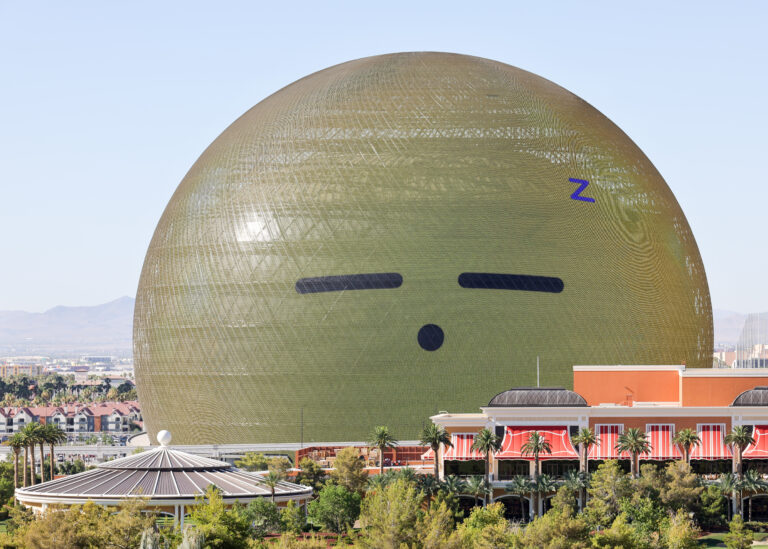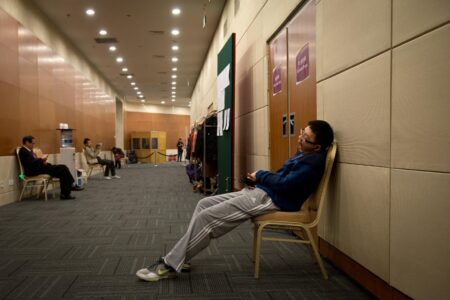
You’ve probably asked yourself this too many times before – “Why am I so tired?”
The golden rule for how to feel less tired and how to get more energy has generally been the same: get enough sleep.
So you do that and get your eight hours in. Yet, you still wake up feeling not great.
As much as you’re tempted to stay in bed until noon, there’s only so much sleep can do.
Sleep is important but not a cure-all, even though many of us want it to be.
There can be many other reasons for your tiredness.
You’re not eating well, you’re stressed and anxious, your hormones are everywhere. There are many more reasons — and we’re going to go through each of them.
Perhaps your eyelids are sagging right now reading this but stay with us.
The more we understand what’s going on with our bodies, the closer we’ll get to the solution.

How to feel less tired? Drink coffee — but not too much! Source: AFP
Caffeine and sugar
Caffeine and sugar give us energy, so you think you’ll get both by downing a triple mocha frappuccino with caramel swirls.
Wrong.
If you’re looking for ways on how to feel less tired, combining coffee and loads of sugar will give you a short burst of energy but you will end up crashing later in the day.
In fact, a Starbucks caramel frappucino was found to be one of the unhealthiest drinks around. It has 48.5g of sugar—that’s 12 teaspoons worth of sugar, surpassing more than an adult’s recommended daily allowance (30g of added sugar).
Drink these often and it can have adverse effects over time, such as disrupting your sleep, increasing your blood pressure, or worsening gut health.
Amyone who has figured out how to feel less tired and how to get more energy will tell you it takes more than just coffee and sugar.
It’s an entire lifestyle change — hard, but so worth it.

Just like us, animals need a big fat yawn too. Source: AFP
How to feel less tired and how to get more energy to live your best life
Have a solid breakfast
It takes discipline to prepare a good, health breakfast. But those who do it (read: yours truly) swear that they are less fatigued than those who actively skip it.
Egg dishes, ham and bacon, toast, or pancakes can greatly boost one’s energy levels in the morning. But most of the time, we’re rushing off for school or work, so even a quick breakfast like a sandwich, some granola, or even a smoothie will suffice.
Skip anything processed as much as possible. For maximum energy, get something as natural as possible.
Rethink stress
Stress increases our cortisol levels. This is when our heart rate and breathing quicken. When the stress is gone, the cortisol level normalises. This up and down can cause you to be more sleepy.
Whether you’re in a competitive school or a fast-paced workplace, stress is everywhere. Stress is even at home, as you do the most relaxing things possible and start thinking about money, family, life.
It’s unavoidable and rather than parroting bro science that tells you to avoid and reduce it — a Harvard study suggests you embrace stress.
They found that when people are told that their higher rate, faster breathing and jitters are making them stronger, helping them succeed and boost their performance, they did far better on a test than those who were not told.
“What I learned from these studies, surveys and conversations truly changed the way I think about stress,” says Stanford psychologist Kelly McGonigal whose Ted Talk “How to make stress your friend” has been viewed over 33 million times. “The best way to manage stress isn’t to reduce or avoid it, but rather to rethink and even embrace it.”
Listen to music
Many people listen to music while they study or work – but many are probably not listening to the best music.
While yes, music can be a motivating stimulus, but researchers have found that there is a difference in energy levels when it comes to passively listening or actively participating. They noted that listening to music or a story will make you feel more relaxed, decreasing your energy; in comparison, those who sing or tap along to the rhythm actually feel more awake.
Understandably, there’s no way you can burst into song in the middle of the library or the office. But bop your head to the beat or mouth the words – it can provide a good energy boost!
Drink water
We swear we’re not nagging when we tell you to drink water. But it is a fact that being dehydrated does make you feel tired – what’s crazier is that most of us don’t even realise that we’re dehydrated!
Practice the good ol’ 8 cups of water a day tip. You may need more water than that, depending on your activity levels or the weather as well. Opt for water instead of sodas when you go out for lunch – it’ll cost less too!
You can find water in other sources as well, such as in fruits and vegetables like watermelon, cucumbers, celery and lettuce. And no, don’t you dare say “coffee has water”.

Just like a plant, we humans need a healthy intake of sunlight. Source: AFP
Increase vitamin intake
Certain vitamins are essential to prevent fatigue: vitamin B12, vitamin D, iron, and magnesium. If you’re constantly tired, look into getting these vitamins or supplements through food (and not relying on supplements) and consult a doctor or health provider if needed.
There are many natural ways to obtain these vitamins. Food sources for vitamin B12 include poultry, meat, fish, and dairy products. Red meat, beans, nuts, and shellfish are good sources of iron.
Some foods high in magnesium are leafy greens, seeds, beans, and even dark chocolate.
It’s important to boost your vitamin D intake as well, as it will help reduce fatigue and repair muscle cells. Eat vitamin D-rich foods like egg yolks and chopped liver for a good energy boost. If you’re not a fan of those foods, just go outside for some sunlight – yes, it’s as simple as that.
Move .. a lot
To train for a marathon, you have to be comfortable running 40 kilometres (25 miles) in a week. It’s a huge feat of the human body where you lose buckets of sweat and deplete a huge amount of energy.
Yet, those who put themselves through this may be some of the most energetic people you meet — not only during their run but throughout the day.
This could be because they’re feeling good. After working out, a runner’s blood has been found to contain high levels of a THC (the active ingredient in weed), which researchers say results in a high, i.e. dopamine, the “feel-good” hormone.
And because those who work out are active and exert themselves during the day, they’re more than ready to sleep at night. Repeat this often enough and you’ll have “sleep hygiene” — health habits that let you get the Zzzzs instead of insomnia.
Chew gum
Researchers have found that people who chew gum while studying are less tired and more alert as compared to their peers who don’t. At the same time, chewing gum while performing tasks can improve various aspects of brain function, such as alertness, memory, understanding, and decision-making.
The reason? One theory is that the action of chewing gum increases blood flow to the brain. Of course, it would be optimal to chew sugar-free gum!

Having a glorious buffet once in a while certainly wouldn’t hurt, but be prepared for the food coma that follows. Source: AFP
Have regular meals
Skipping breakfast is bad. But do you know what’s worse? Having irregular meal times. You burn less energy and your metabolism slows down because you’ve run out of fuel – that’s why you’re hangry and tired all the time.
Many people believe skipping meals or eating less often helps us to lose weight. Nothing could be further from the truth. A regular human should eat every four to six hours while they are awake; small, frequent meals also help.
So perhaps you may want to rethink starving all day before a Korean barbeque buffet.
Establish a routine
Humans are creatures of habit; having a daily routine where you wake up and go to bed around the same time can be helpful. This will raise your energy levels during the day and allow you to wind down at bedtime.
It’s also a little deeper than just creating as schedule or managing your time properly. When we establish a routine, we eliminate the need to make certain choices repeatedly; that way, we free up our cognitive resources – aka brainpower – for more important matters. When we are forced to think too much, we end up tired.

How to get more energy from your food? Make it colourful. Source: AFP
Eating the right food
What you eat also matters, as it can make or break your energy levels. Yes, a cinnamon pretzel as a mid-day snack sounds great, but the energy boost it will provide will leave almost as fast as it comes. Cue you feeling sluggish and just overall… bleh.
Even if you avoid sugary treats, certain foods can still be problematic for your energy levels. For example, a heavy meal will cause your body to work overtime, attempting to digest and process the food – that’s why you end up feeling tired and sleepy after a big fat meal.
Typically, these are the foods you should avoid, or consume less of: sugary treats and drinks, large amounts of carbohydrates, processed food high in salt, fried foods, alcohol, and the good ol devil, caffeine. Instead, opt for whole-grain alternatives, or bake your food instead of frying it.
If you constantly feel drowsy or have a headache after eating certain foods, you may want to consult a doctor and investigate further, as it could be a case of food sensitivity or intolerance.










